Cleveland Campus
(216) 242-4342Cincinnati Campus
(513) 813-4962Columbus Campus
(614) 423-4945Miami Media School
(786) 581-8552Colorado Media School
(720) 897-7528O'Hare Campus
(630) 796-4651Chicago Campus
(312) 884-8000Is Broadcast Media Career Training Right for You?
Take The Free Quiz!Careers in Radio Broadcasting
Updated: May 2022
Thanks to the advent of digital radio, it’s never been a more exciting time to start a career in radio. Whether you’re dreaming of being the star behind the mic or want to be a master of the control board, radio has a wide range of career paths to offer. People everywhere will be able to flip on the radio in their home or car, or even using one of the many online radio programs and apps and listen to your work on a daily basis – paving the way for a truly rewarding, enjoyable career.
What Kinds of Career Options Does the Radio Industry Offer?
Digital radio has truly opened the door for a massive expansion in the world of radio, allowing for the development of a huge variety of industry genres and specialties. Radio stations run the gamut from independent to commercial, with content that covers topics including music, sports, news, entertainment, political debate, and more. Whatever your interests may be, odds are that you’ll be able to find a radio show to match.
When you choose a career in radio, there are three main paths you can choose between: creative, technical, or management. Each of these areas offers great promise for career growth and development along the way.
- For people interested in the creative side of the radio, job prospects can include roles such as presenters, DJs, and even radio producers. In these radio-centered jobs, you can be the voice of your own radio program or co-host with another DJ, chatting about a variety of topics and interacting with guests and callers. You might be responsible for introducing the latest music hits or leading special segments on a regular basis. If producing is more your style, becoming a radio producer could be a great option. As a producer, you’re responsible for creating the show content, including setting up special features, interviews, and even playlists. You’ll also probably be the middleman between the station and its sponsors.
- People that work on the radio’s technical side are there to make sure everything runs smoothly, with as few technical hiccups as possible. You might be in charge of the control panel, filling the incredibly important role of an audio engineer. This role requires a well-rounded knowledge of sound engineering and a problem-solver attitude.
- Interested in the management side of radio? In these roles, you’ll be leading the way for the station by managing the full team of DJs, producers, and sound engineers. A station manager often wears many different hats, primarily serving as the glue that holds everything together.
What Do I Need to Start a Career in Radio?
For most radio careers, you’ll need some level of special training or certification. The type of training you’ll need depends largely on the career path you want to pursue. For example, a technical career in radio requires experience and education in audio and sound engineering, while a future DJ would be better off enrolling in a radio broadcasting education program. A good media school will combine classroom education with hands-on training to properly prepare you to enter the industry as a candidate with a competitive edge.
In addition to the proper education and certification, you’ll also need a few other key ingredients: a passion for your field of choice, dedication, and the willingness to learn and work hard. Working in radio can be an exciting, lucrative career path, particularly if you are prepared to do what it takes to stand out from the crowd.
Learn More About a Career in Radio from The Media Schools Today!
Ready to pursue your dream of a career in radio? Take the first step towards your exciting future by applying online for your spot at The Media Schools in Colorado, Ohio, Illinois, and Miami today.
Promotions
There are two overall areas within promotions: People who represent the station out at events, and people who produce promotional messages about the station. Working at station event promotions is a great entry-level start, and radio stations especially hire many of these positions. Producing promotional messages usually requires some experience, as a higher-level of skill in editing digital audio files is required.
Morning Show Host
This is premiere the “talent” job in radio: the morning show is usually considered the most important broadcast of the day, therefore the morning show host(s) are the most promoted personalities.
Usually there’s at least one co-host, and lots of preparation goes into making the show entertaining and info-packed in between the songs, commercials and other standard elements of the program.
Board Operator
Once you know how to operate an audio mixing board, which is the first piece of equipment you’ll come to know in radio broadcasting, you can help out in this position.
A beginning board operator is usually paired with the host of a talk-type radio show, and this position keeps the talent on time with commercials, facilitates the playback of recorded elements, sometimes fields phone calls, and ensures a clean broadcast of the program.







